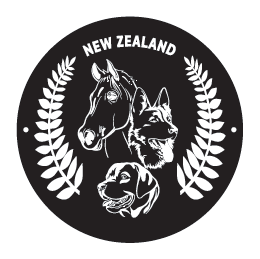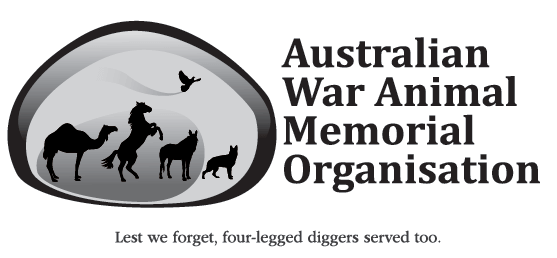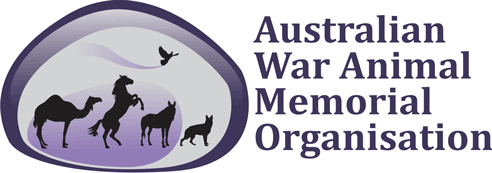In 2025 the first award ceremony was held at the Australian War Memorial, Canberra. The first awards were presented to ADF combat assault dogs Manic and Aslan.
The civilian service award was presented to Smoky the worlds first recorded post traumatic assistance dog during the second world war in Brisbane.
It is pacifically aimed at Australian and New Zealand animals.
The awards will be announced once a year and all nominations considered by a panel of animal experts.
Previously two UK based charities have awarded animal awards to Australia. Why then an Australasian Award. In line with other honours and awards in Australia and New Zealand we have gone from British awards such as the MBE, to an Australian OAM as an example. The aim is to have an award that is specifically relevant to Australian & New Zealand animals.
Secondly, on consultation with both Dickins and Blue Cross associations that their future focus will be on British animal. Interestingly Blue Cross have declined to place our awards on their webpage not to upset UK members (as two of the recipients in Australia and New Zealand were bulldogs which breed, they do not acknowledge). I have acted as liaison officer, having awarded three Australian and three New Zealand Blue Cross medals in the past few years. I have also been the representative for nominations of the UK Dickins Medal. Of interest my own Queensland Police Service dog is the only animal in Australia to be award the Dickin Commendation award.
The registered animal charity AWAMO Australian War Animal (Patrons Bob Atkinson Rtd Commissioner of Police AO APM , Dr Neil Smith Colonel Commandant, Royal Army Veterinary Corps BVetMed MSc MA FRCVS, Wendy Taylor Vice President RSL Queensland) will govern the award in Australia. The award in New Zealand has its own selection panel under the RSA.
The following information outlays how the award will be administrated.
This same process is currently being used to oversee similar British and American awards.
Terms of Reference (TOR)
Categories
There are two categories one for all civilian animals and one for service animals.
The award will be announced on 11 November each year and issued on 24 February International War and Service animal day.
Criteria
The following criteria are to apply for the issue of the medal:
Cat 1. Any animal serving as in the Defence Forces or Emergency Services who as displayed distinguished service are eligible.
Cat 2. Any civilian/private animal that service is recognised for exceptional/ distinguished deeds. or service to the community.
Selection Process
All award nominations will be assessed by a specially selected Panel made up from members of the general community, an RSL/RSA representative, Australian & NZ Defence Force, Light Horse, Service animal dog associations and animal welfare groups. The Panel will report its nomination to the President of the panel who initially is responsible to select the nominated animal for this award via a selection panel. The process for selection is detailed with these Terms of Reference.
The Panel
The initial members of the panel have been selected for their knowledge, skills and experience in animal and relevant fields and are expected to use these abilities to assess all applications. The inaugural panel is made up of the following members of the individuals. However, it is open to all participates- this is just a starting point. The panel will not exceed ten members.
Panel Members (Australia)
President Nigel Allsopp AWAMO
Vice President Ian Grey RSL
Secretary Graham Carter RSPCA
Treasurer Wendy Harrison
Director Ray Thomas RDHA
Director Laurie Watts ALHA
Director Dr Kendal Crocker Veterinarian ADF
Director Greg Hill QPS
Director Alan Watson
Panel Member (New Zealand)
President Colin Waite (BEM)
Vice President Brian Ramsey (BEM)
Secretary Tina Grant
Treasurer Diane Wilson RSA
Director Alan Inkpen NZDF
Director Reagan Blogg
Director Merenia Donne (NZOM) Kotuku Foundation
Director Rodger Parton
Director Barrie Gerbich.
Guidelines to aid the Panel's decision making.
1. The nominated animal's action and service must meet the awards condition absolutely and unconditionally.
2. The action and serviced has been recorded, documented and certified.
3. Detailed independent witness account to the action must be submitted, preferably with corroboration.
4. Decision should be based on the Panel's investigation and research to conclusively prove/disprove evidence provided.
5. Undue media influence or sensationalism should be considered.
Operation of the Panel
The secretary will convene a meeting of the Panel when necessary to deal with the business of the Panel, for the consideration of nominations or when requested to do so by the President. The business of the meetings may be conducted by electronic communication. Members will not be required to attend meetings in person. Decisions may be ratified by email. At least one meeting will he held annually in November each year.
The secretary will submit minutes of meetings to all board members as soon as practical. Each Panel member has one (1) vote. A majority of votes decide the success or rejection of the nomination. Where the vote is tied, the President will cast the deciding vote.
Members who have a conflict of interest in any business may at the Presidents discretion take part in the discussion but may not exercise their vote on the matter. The panel will have a maximum of 10 members at any one time. Nominations/replacements will be voted on by the Executive Committee at the annual meeting.
Ownership of Animal Service Medallion
The Animal Award once issued to the handler/owner becomes that persons property.
Presentation of the Medal
Wherever possible, the Animal Medal should be issued to the animal at a dignified ceremony. Wherever possible a VIP should present it.
Wearing of Medallion
The animal recipient can wear the medal on parades and ceremonies, placement being on around the animal’s neck or attached to a coat. A separate pin will be issued to the recipient’s human handler/owner.
Cost considerations
AWAMO has funded this project. With an initial production of 50 medallions. A duplicate can be purchased for display or loss at cost. This item will not be for sale to the public.
Eligibility
An application form can be downloaded Annex.2 with details including eligibility. Due diligence in processing to ensure that an animal satisfies the criteria before any action for the issue of a medal will be undertaken. This processing must include an independent witness not related or associated with the animal.
Issue of the Medal
The Committee is to undertake due diligence in processing the nomination to ensure that an animal satisfies the above criteria before any action for the issue of a medal is undertaken. This processing must include:
A formal application
A description of the occurrence. A medal can be initiated by an application in writing signed and submitted to the selection committee.
Guidelines for nomination include:
In the case of a service animal, its handler or other service member.
An independent witness to the event.
Any person who can satisfy the issuing authority that they are a competent authority on the nomination of the animal in question.
A special award can be issued by the President of AWAMO for any suitable international recipient or to a museum or similar to help promote the award.
Annex A
 |
Animal Distinguished Service Medallion Nomination Form |  | ||
POC Name:
| ||||
Contact Details (Email)
| Phone Number: | |||
Address:
| ||||
Relationship to the Nominated Animal:
| ||||
Relationship to Nominated Animals POC:
| ||||
Animals Name:
| Animals Age: | |||
Animals Species and Breed:
| ||||
Animals Organisation (service/privately owned):
| ||||
Animals Role:
| ||||
Animals History:
| ||||
Why is the animal being nominated?
| ||||
| Attached Information: Yes / No | Number of Pages: | |||
Nomination Rules
The following rules are to be adhered to concerning animals being nominated:
- That they can be either a companion, working, service, or therapy animal.
- That They must be based in Australia or New Zealand. However, the reason for the nomination can take place outside of these countries.
- That government owned animals require written permission from the chain of command, supporting the nomination and accepting that they agree that AWAMO may use the information for marketing to promote the charity and its work.
- That nomination not made by the owner will need written permission of the owner, supporting the nomination and accepting that they agree that AWAMO may use the information for marketing to promote the charity and its work.
- That a maximum of two supporting statements may be attached if desired.
- That nominations can include supporting material including media cuttings and photos of the animal.
Assessment Criteria
The following criteria will be used by the selection panel and is to be taken into consideration when nominating the animal:
1. Can the animal’s actions be attributed to:
- The saving of a human life and or lives and or from sustaining life changing injuries?
- The protection of Australian boarders?
- Supporting an individual and making their life more manageable?
- Impacted on media and or public perception?
- Supporting other elements, in order to achieve a successful outcome?
2. All entries will be assessed on the reasons
3. Posthumous nominations will be considered.
4. The selection panel will consider the following:
- The animals background, have they triumphed against adversity i.e. came from an animal shelter
- The owner’s background, have they shown remarkable courage or coped with tragedy of illness.
5. Has the animal been recognised by any other organisation or awards process?
6. The emotional impact of what the animal has done.
This policy ensures the structured and transparent nomination process for the Animal Distinguished Service Medallion, reflecting the high standard of service and dedication that animals provide to society.
Recipients
2024 | Manic (presented at The Australian War Memorial Canberra, 24.02.25)
Manic, a Belgian Malinois, served with distinction for six years as a combat assault dog with the 2nd Commando Regiment, Special Operations Command Australia. His service included deployments to the Middle East, where he provided critical mission support to Australian training teams and coalition forces. Additionally, he played a key role in Australia’s Tactical Assault Group, demonstrating unwavering courage and dedication to his team. Now retired, Manic continues to serve as an ambassador for military working dogs, advocating for greater recognition and support for these exceptional animals. Manic began his life in a pound before being picked up by the Royal Australian Air Force and later sold to the Australian Defence Force for just $8.
2025 | Aslan, presented at The Australian War Memorial Canberra, 24.02.25)
Aslan dedicated six years to serving as a Combat Assault Dog with the 2nd Commando Regiment, Special Operations Command Australia. His service took him to the USA, where he played an integral role in supporting Australian training teams and assisting multiple coalition forces. In addition, Aslan contributed to the Tactical Assault Group for three years, showcasing extraordinary devotion and steadfast courage throughout his career. After surviving a battle with cancer, Aslan dedicates his retirement to raising awareness of the severe impact of this disease on canines and promoting health and longevity practices for not only Military Working Dogs in retirement but for all dogs. Aslan, a Dutch-born dog, was recruited by the ADF from a Military Working Dog kennel in the Netherlands.


